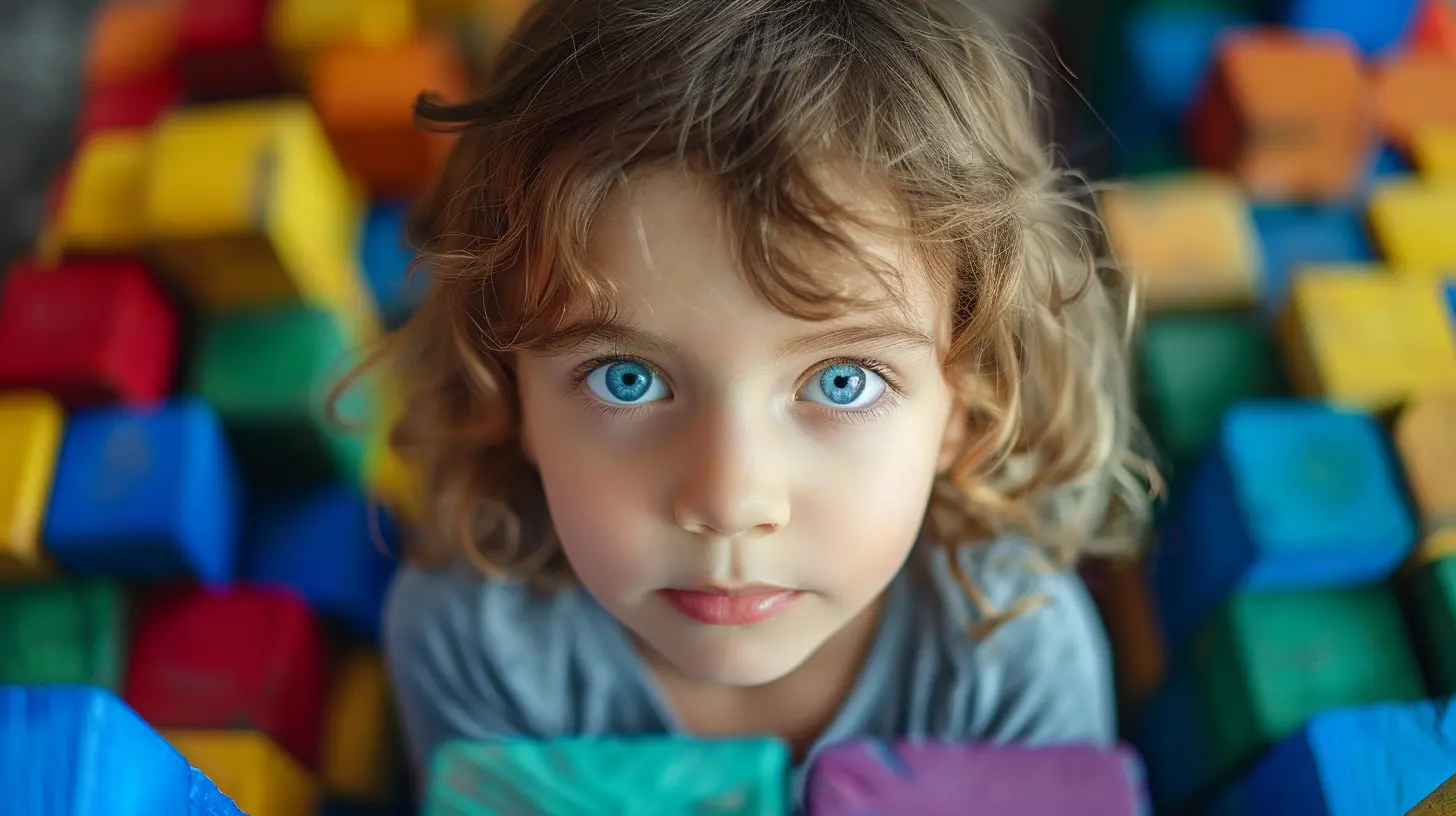Helping Children Develop a Growth Mindset
12 July 2025
Raise your hand if you've ever caught yourself saying, "I'm just not a math person" or "Art just isn't my thing." Yep, same here. Now think about your kids—are they picking up those same vibes? Yikes. But don’t panic—there’s a fix. It’s called a growth mindset, and it’s one of the most powerful tools we can teach our little humans.
In this wild whirlwind of parenting, helping children develop a growth mindset might just be your secret weapon. So buckle up, because we’re diving into what it means, why it matters, and how to sprinkle that mindset magic into your child's life—without needing a PhD in psychology or wizardry.

What Is a Growth Mindset, Anyway?
Let’s start with the basics. The term growth mindset was coined by psychologist Carol Dweck (she's basically the Beyoncé of developmental psychology). It’s all about believing that abilities and intelligence aren’t fixed traits—they can grow and improve with effort, learning, and a dash of good ol’ fashioned persistence.The opposite? That would be a fixed mindset—believing you either have it or you don’t. Kind of like thinking you're either born with cupcake-decorating skills or doomed to frosting disasters forever. Spoiler alert: you're not.
Now imagine your child faced with a tricky math problem. A fixed mindset kid might throw in the towel and say, “I can’t do this!” while a growth mindset kid says, “I can’t do this… yet.” See the huge difference? One shuts the door. The other just leaves it cracked open for possibility.

Why a Growth Mindset Is a Big Deal for Kids
So, why does this matter so much for children? Here’s the scoop:- Resilience Rocket Fuel: Kids with a growth mindset bounce back from setbacks faster than you can say “participation trophy.”
- Effort Over Ego: They learn to value effort over innate talent, which means they try harder and longer.
- Less Fear of Failure: When failure isn’t a dead end but a stop on the way to success, kids get braver about trying new things.
- Better Academic Performance: Studies show that growth-minded kiddos tend to perform better in school. Brain power plus determination = unstoppable.
It’s kind of like planting a garden. A fixed mindset says, “This seed just isn’t a good one,” while a growth mindset says, “With some time, sunlight, and love, this baby’s gonna bloom!”

Spotting the Signs: Growth vs. Fixed Mindset in Kids
Alright, Sherlock—time to put on your parenting detective hat. Here’s how to figure out where your child stands on the mindset spectrum.Growth Mindset Indicators:
- Says things like, “I’ll try a different way.”- Enjoys challenges.
- Gets excited about learning new things.
- Sees mistakes as part of learning.
Fixed Mindset Red Flags:
- Says things like, “I’m just bad at this.”- Avoids new tasks or quits easily.
- Gets upset or defeated when things get tough.
- Equates failure with not being smart.
But no judgment here—kids (and adults!) can flip-flop between mindsets in different areas of life. The goal isn’t perfection. It’s progress.

How to Help Your Child Develop a Growth Mindset
Okay, so your kid isn’t quite there yet. All good. Growth mindset isn’t a switch—it’s a skill. And lucky for us, it’s teachable! Here’s how to start flexing those mindset muscles.1. Praise the Process, Not the Person
Instead of saying, “You’re so smart,” try, “Wow, you worked really hard on that!” Why? Because complimenting effort, strategy, and persistence teaches kids that those things matter more than natural talent.🧠 Think: “You’re improving so much because you keep practicing!”
🚫 Avoid: “You’re a genius!” (Even if they are—save that one for grandma.)
2. Normalize Mistakes (Like, Really Normalize Them)
Let’s be real—no one learns to ride a bike without a few wipeouts. So when your child messes up (and they will), resist the urge to fix it immediately or gloss over it. Instead, treat it as a golden opportunity.Say something like: “Mistakes help us figure out what to try next.” Or share your own goofs: “Remember when I burned dinner last week? Now I double-check the timer!”
3. Use the Mighty Power of “Yet”
This one’s a game-changer. Add the word “yet” to fixed mindset phrases and watch the transformation.- “I can’t do this… yet.”
- “I don’t get it… yet.”
- “I’m not good at sports… yet.”
It’s a tiny word with a massive confidence boost. Like training wheels for positive thinking.
4. Model a Growth Mindset Yourself
Kids are basically little sponges (with WAY more energy), soaking up everything you say and do. That means your mindset matters too.When you hit a challenge, talk through it. “This is tricky, but I’m going to keep trying.” Trust me—they’re watching. And when they see Mom or Dad pushing through frustration or learning something new, they’ll know it’s okay for them, too.
5. Encourage Curiosity (Even When It’s Exhausting)
Yes, answering the 4,372nd “But WHY?” question in a day might test your sanity. But curiosity is a cornerstone of learning. When kids are curious, they’re open to new ideas and experiences—and that’s mindset gold.Instead of shutting it down, join the quest. “Hmm, good question. Let’s find out together!” Google might become your co-pilot, and that’s okay.
6. Help Set Goals (Tiny Ones Work Too!)
Goals give kids something to aim for—and that means they’re more likely to work through obstacles. Help them set small, achievable goals like reading one extra page a night or practicing piano for an extra minute each day.Bonus trick: Celebrate progress, not just results. “You practiced every day this week—that’s awesome commitment!”
7. Avoid Labels (Even the Nice-Sounding Ones)
Calling your child “the smart one” or “the athletic one” seems like praise, right? But it can box them into fixed categories, making them afraid to try things that don’t fit their label.Instead of labeling, describe what you see. “You noticed that detail quickly!” or “You were really focused during that game!”
8. Teach the Brain’s Superpower
Kids love superheroes—so tell them they’ve got one inside their head. Explain how the brain is like a muscle that gets stronger the more you use it.Use fun visuals: “Every time you learn something new, your brain throws a party! It lights up and makes new connections!” Hello, science AND sparkles.
Real-Life Growth Mindset Moments (A.K.A. Wins to Watch For)
You’ll start to notice the shift in little ways. Maybe your child doesn’t melt down instantly over hard homework. Maybe they try drawing again after a failed doodle. Maybe they say, “Can I try that again?” instead of storming off.Those are the victories. Cheer them on. Quietly fist-pump in the pantry if you must.
Still Got Growth Mindset Questions? Let's Tackle a Few FAQs
Q: What if my child just isn't motivated?
Ah, motivation. The elusive unicorn. The key here is helping them find intrinsic motivation—doing things because they enjoy the process rather than to earn a sticker or avoid a lecture.Start by connecting learning to their interests. Minecraft fans? Build math problems around mining. Dinosaur enthusiasts? Make reading about T-rexes your weekend jam.
Q: Can schools help with this?
Absolutely. Many schools are jumping aboard the growth mindset train (choo-choo!). But even if yours isn’t there yet, you can be the trailblazer at home. If you're feeling bold, chat with the teacher about bringing some mindset magic into the classroom, too.Q: Can a child with learning differences still develop a growth mindset?
Big YES. In fact, it’s extra important for them. A growth mindset helps reframe challenges as part of the journey—not a dead end. It empowers them to see themselves as learners with unique paths, not broken puzzles.Final Thoughts: It's a Process, Not a Pinterest Project
Helping children develop a growth mindset is less about crafting some perfect parenting plan and more about showing up, staying curious, and making the effort to encourage effort (see what I did there?).There will be tough days. There might even be days when you need a mindset boost. That’s okay. You’re growing, too. And isn’t that the point?
So go ahead—drop “yet” into every other sentence, celebrate those glorious mistakes, and keep reminding your kiddo (and yourself) that the brain’s a beautiful work in progress.
’Cause in the end, raising a growth-minded child? That’s a mindset win for the whole family.
all images in this post were generated using AI tools
Category:
Child DevelopmentAuthor:

Paulina Sanders
Discussion
rate this article
1 comments
Eleanor Edwards
Empowering children with a growth mindset fosters resilience and curiosity. Celebrate their efforts, encourage learning from challenges, and watch them thrive. Every step forward is a success!
August 9, 2025 at 4:20 PM

Paulina Sanders
Thank you for your insightful comment! I completely agree—celebrating efforts and embracing challenges are key to nurturing resilience and curiosity in children.


